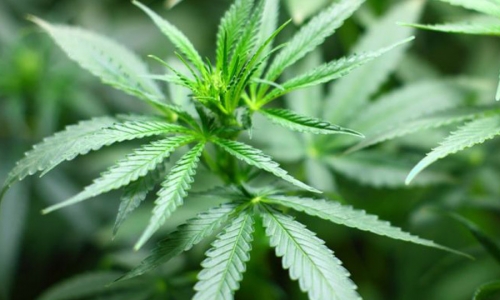I recently vacationed in Colorado, where marijuana is legal. While there, conversations came up about its use and whether it is really any different from alcohol. If it is legal, is it wrong to use in moderation? And what about its medicinal use – wouldn’t it be better to use marijuana than to use prescription medications like OxyContin (which tops the list of most abused prescription drugs)? I have always believed that any drug use was bad, but these were valid questions. So . . . I went searching for answers.
WHAT DOES SCIENCE SAY ABOUT MARIJUANA?
THC, the active chemical in cannabis, changes how information is processed in the hippocampus, an area of the brain responsible for memory formation. Studies have shown learning, memory, attention, motivation, and overall cognitive function to be impaired in marijuana users. However, many people don’t realize that these negative symptoms can last for weeks after marijuana’s immediate effects wear off. (1)
Dr. Damon Raskin, internist and Diplomat of the American Board of Addiction Medicine, advises:
Marijuana these days can cause changes in the brain that impair learning, especially in teenagers as their brains have not finished developing. Brains are not fully developed until the age of 25 or 26. Chronic marijuana use can lead to changes in both personality, judgment, and reasoning skills. Pot damages the heart and lungs, increases the incidence of anxiety, depression and schizophrenia, and it can trigger acute psychotic episodes. (3)
Contrary to what many believe, marijuana can be addictive, leaving up to 30% of users with some degree of problem use. “Among youth receiving substance abuse treatment, marijuana accounts for the largest percentage of admissions.” (1). The marijuana available today is more potent than it was in the past, and it is also not uncommon for it to be laced with other chemicals or drugs. Both of these factors make marijuana potentially more dangerous and addictive than commonly believed.
IS MARIJUANA REALLY THAT DIFFERENT FROM ALCOHOL?
There is no disclaiming that alcohol abuse is a widespread social problem in our society, but alcohol can be enjoyed safely when used in moderation. Unlike alcohol, the potency and purity of marijuana varies, and the effects on a user cannot be predicted, so there is no guarantee of “safe” or controlled use. With alcohol, there can be an expectation of sobriety after just one drink, but with marijuana, some people can get high after just one puff. Even in legalized states, where there would be an expectation of purity and standardization, many people are accidentally overdosing.
WHAT ARE THE EFFECTS OF LEGALIZED MARIJUANA?
In September of 2015, a federal 170-page document by the Rocky Mountain High Intensity Drug Trafficking Area was released with information regarding the effects of legalized marijuana in Colorado. They found that marijuana-related: traffic deaths increased by 32%, ER visits increased by 29%, hospitalizations increased by 38%, and calls to the Rocky Mountain poison control center increased by 72%. (2)
The legalization of marijuana leads to increased acceptance and use (which also translates to increased abuse). Because of marijuana’s negative effects on the brain and potential for addiction (especially in adolescents), I would discourage society from normalizing its use in any way. Social acceptance of marijuana use would only encourage experimentation.
The Bible is clear that we are to honor the authorities over us and follow the laws of the land (Titus 3:1, Romans 13:1-14), but the issue with marijuana use is not just a legal one. Alcohol is legal but it is still widely abused. Prostitution in legal in some places, but clearly detrimental. We must examine the spiritual fruit of the behavior and use wisdom when choosing which freedoms to embrace.
WHAT DOES THE BIBLE SAY ABOUT MARIJUANA?
Though the Bible does not give us clear instructions on marijuana use, we have plenty of guidance regarding alcohol. According to Psalm 104:14-15, God causes the plants to grow to provide food, but also for our enjoyment. We read that wine was given to “gladden the heart of man.” However, we also have many scriptures that say drunkenness is a sin, and that wine can lead people astray. (Proverbs 20:1, Proverbs 23:29-35, Isaiah 5:11, Ephesians 5:15-18) Though drinking alcohol is never forbidden in the Bible, scripture distinguishes between the proper use and the abuse of alcohol. So if God created wine as something good, and it is only a sin or problem when it is abused, can Christians also use marijuana in moderation?
As I was searching the scriptures, I discovered the Bible does in fact address drug use. Galatians 5:19-21 gives us a list of forbidden practices connected to the fallen nature of man, of which sorcery is one. The Greek word for sorcery is pharmakeia, from which we get the word pharmacy. In Biblical terms, the use of intoxicants (substances that put one in another frame of mind) was a form of sorcery. There were people who practiced witchcraft and used such drugs to alter one’s perceptions and reality, often while casting spells and interacting with another spiritual realm. This was an idolatrous practice that opened people up to potential spiritual attack and seducing spirits.
1 Peter 5:8 tells us to be of “sober mind” and “watchful,” because the enemy prowls around, seeking to devour us. How can we stand guard against the attacks of the enemy if we have used a substance that muddles our reasoning and interferes with our will? Taking drugs that alter our judgment and self-control prevent us from having a sober mind, making us an easier target for the enemy.
There are people who use Genesis 1:29 in defense of marijuana use. God said, “Behold, I have given you every plant yielding seed that is on the face of the earth, and every tree with seed in its fruit. You shall have them for food.”
Some believe this scripture affirms that God created all herbs and plants for our use and benefit, including marijuana. However, if this is true, then I am left with several questions. Does that mean God also created cocaine for our good, since it is a natural substance from the coca plant? And where does that leave the tobacco plant, because we know smoking is detrimental to our health? How also would we explain poisonous mushrooms and plants? 2 Kings 4:38-41 speaks of poisonous wild gourds that required a miracle through Elisha to protect those who had eaten this “death in the pot.” So, even in Biblical times, all the plants were not good for consumption.
I believe one of two things applies to Genesis 1:29. This scripture may have just applied to plants and trees that were designed to be food. The scripture doesn’t just say “I have given you every plant,” but rather, “I have given you every plant yielding seed . . . and tree with seed in its fruit . . . FOR FOOD.” Otherwise this would mean every plant and tree was meant for the purpose of yielding food, and we know this is not the case today. Actually, plants like oleander, rhododendron, wisteria, and fichus are extremely poisonous if consumed. So either the poisonous plants we have today were never meant for consumption, or these plants were all originally perfect, nonpoisonous, and meant for our good before the fall. We see in Genesis 3:17-19 that after Adam and Eve ate of the tree of knowledge of good and evil, the ground became cursed. This is when thorns and thistles (weeds) were first introduced into the land. Is it possible the effect of sin on our land also led to the growth of harmful plants, including the “weed” people smoke today?
WHAT ABOUT MEDICAL MARIJUANA?
Proverbs 31:6-7 says, “Give strong drink to the one who is perishing, and wine to those in bitter distress.”
Though this scripture refers to alcohol, I believe medical marijuana fits into this category (along with other prescription pain medications). For those who are truly in pain and anguish, there may be situations when medical marijuana can be used “for good.” Just like we use anesthesia (mind-altering drugs) for a good purpose when people need surgery, there may be a place for marijuana’s medicinal use. I can tell you with certainty that I had no problem giving my dad his morphine while he was in hospice care. However, giving a mind-altering drug to someone who is perishing is very different from using it to help manage stress or treat a headache. I wonder how often people are choosing drugs to numb their pain, when God has a better plan for their treatment or recovery.
Regarding any substance that could potentially alter our state of mind (marijuana, alcohol, prescription pain medication, etc), maybe the question to ask is not whether it is legal . . . or even "morally" acceptable for Christians to use, but is it beneficial? Will the activity breed life or death within us?
On a side note, CBD (cannabidiol) is gaining popularity for its medicinal benefits, but CBD is very different than medical marijuana. CBD comes from the hemp plant but does not contain THC, so there is no mind-altering affect. CBD oil has been touted to decrease pain and inflammation in the body, calm anxiety, improve sleep, and even have neuroprotective effects. I have several patients who claim CBD has helped their symptoms, and I have no concerns about them continuing to use it.
WHAT ABOUT MARIJUANA USE IN THE CHURCH?
There is a First Church of Cannabis in Indiana, whose whole foundation is based on embracing marijuana’s benefits. That may sound far-fetched to most, but what about Christians who use marijuana to bring them closer to God? I know a Christian woman in my church that smokes marijuana to enhance her spiritual worship. I am sure she believes her motives are pure, because she is attempting to magnify her connection with God in the process. However, such spiritual “highs” are merely a distortion of the authentic spiritual experiences God desires to give us. We know there is such thing as a true spiritual high from God because we read about it in the book of Acts. After God filled the people in the upper room with the Holy Spirit, many were mistaken as drunk. However, these early believers did not manufacture their experiences; God freely poured out His Spirit upon them as they sought Him and waited.
God’s ways are pure and perfect; He doesn’t need a drug for us to connect with His presence. Attempting to "feel" Him this way would only create a counterfeit experience (of which Satan is all too eager to encourage). Since everything good comes from above (James 1:17), and God gives generously to ALL who ask (Luke 11:9-13), we can trust that if we ask Him for the fullness of His Spirit, He will gladly give it.
I have never been “drunk in the Spirit” as some have experienced, but I have experienced His tangible presence through manifestations of great joy, love, and peace. Such moments have been precious, bearing lasting fruit in my life, unlike any artificial high a drug could bring.
We don’t have to settle for a substitute that is rooted in soulish ecstasy; we can have the real thing.
Further Reading:
You're Free to Toke Up. But Don't
Resources:
(1) drugabuse.gov (2) denver.cbslocal.com (3) lifehacker.com






